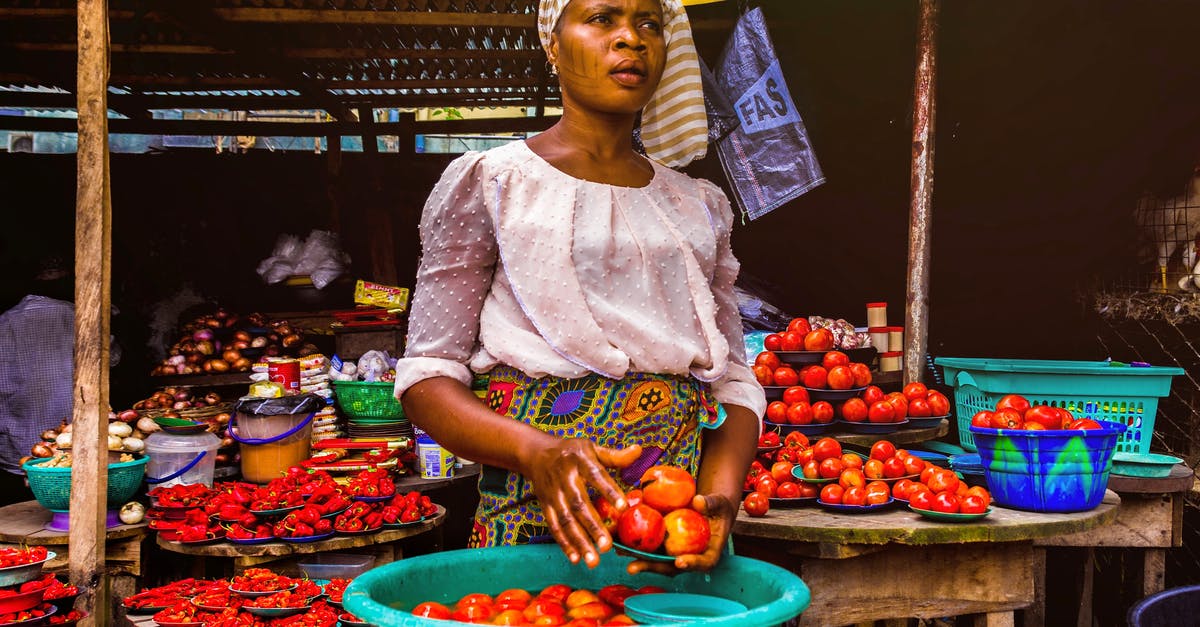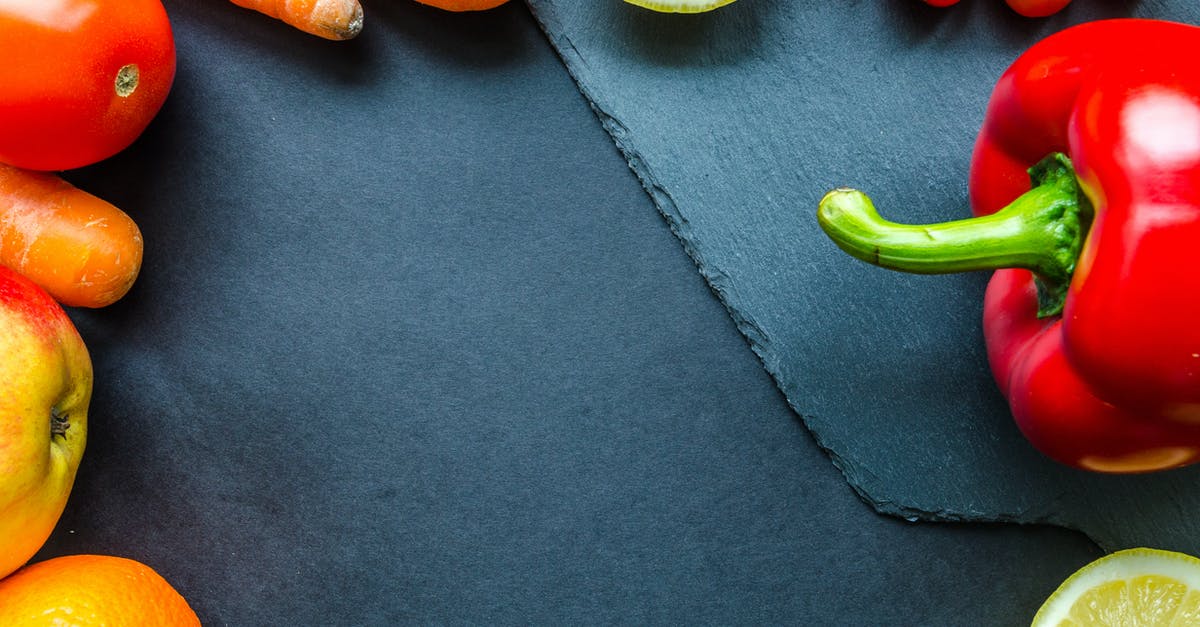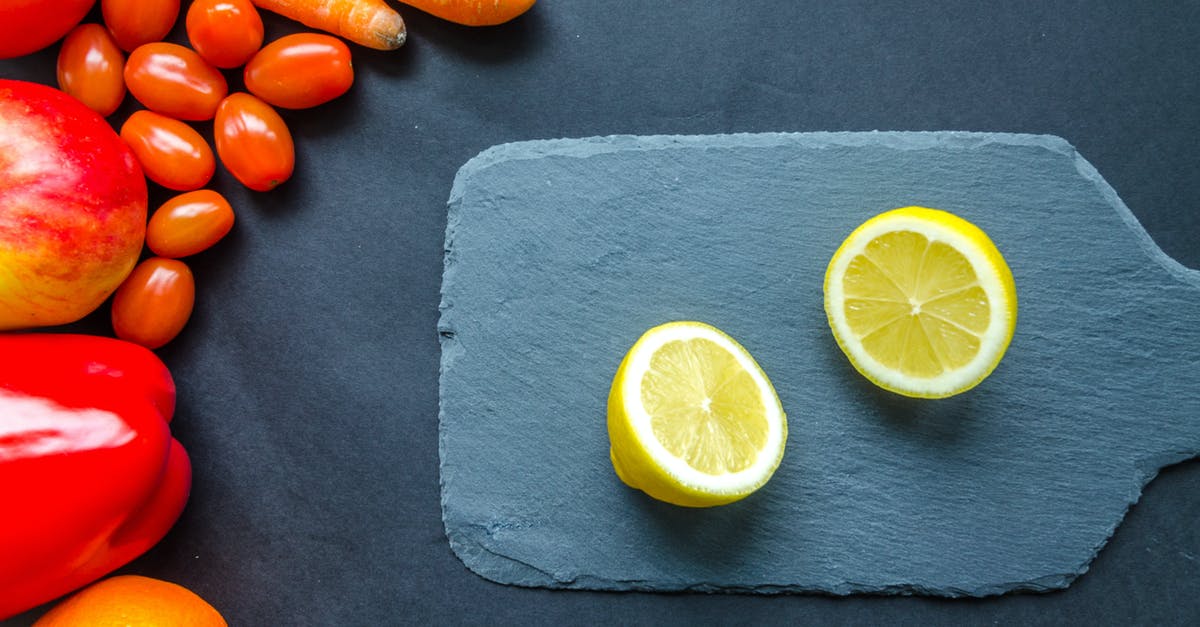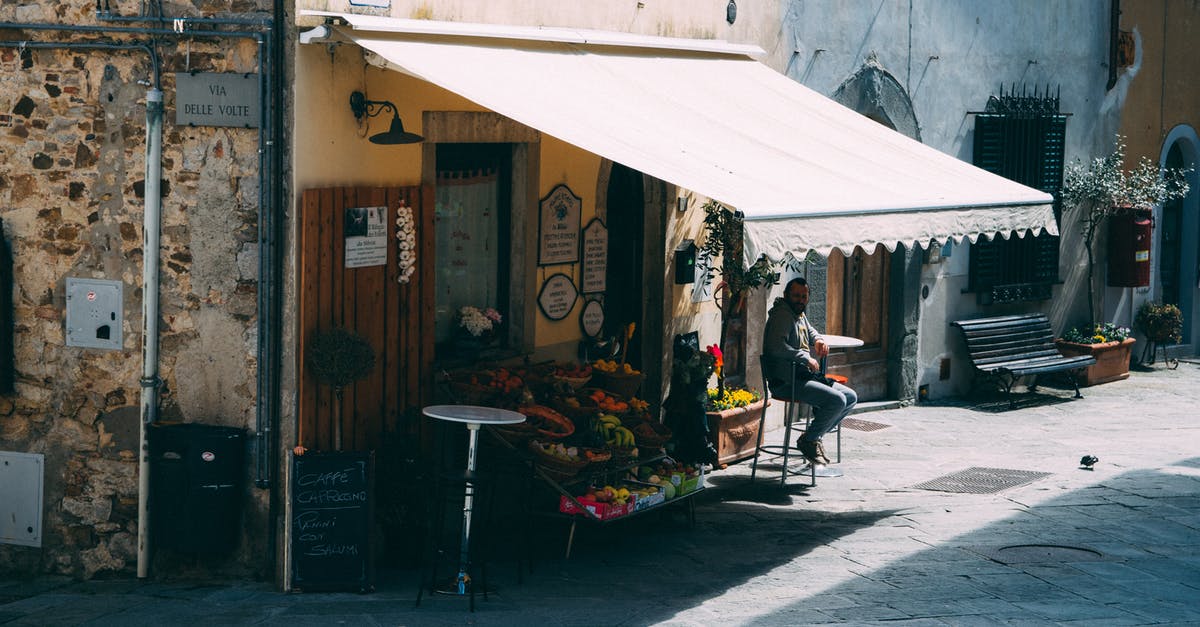How to store cut fruits & vegetables for days?

Is it possible to store fruits and vegetables (like apples, beetroot, pomegranate, etc.) for days, after they're cut?
Here are some things I've read, but I don't know which works best and if at all they do:
Soaking them in a solution of 1 tablespoon lemon and 1 cup water.
freezing them in air-tight containers.
I've read that air-flow is important for storing fruits and vegetables for long periods. I don't know if this applies to cut fruits and veggies too.
Considering that freezing cut fruits and vegetables is the right thing to do, how do I serve frozen fruits and vegetables? I mean, they need to be brought closer to room temperature before they can be eaten, and it'd easily take 2 hours, and the nutrient value could already be deteriorating.
Best Answer
I'm not sure how possible it is to give good and definitive advice on how to store fruits and vegetables generally. The best ways to store food will often depend on the specific kind of food and the purpose you intend for it. So take the following advice as more of hint, as it may be very bad advice for a specific fruit or vegetable.
Generally speaking most kinds of vegetable store well in the fridge or on the shelf for few days uncut. How well they keep on the fridge or shelf after you cut them it depends a lot on the actual vegetable. For example, bell peppers seem to do OK in a bag in the fridge when cut, an onion is fine if you cover the cut side in plastic wrap, while a cut potato will dry out. You can freeze pretty much any vegetable, just check the frozen goods section of your grocery store, and safely store them frozen for years. While you probably wouldn't want to use them as a substitute for uncooked fresh vegetables (eg. in a leafy salad), they can usually be cooked just like you would as if they were fresh. You may not even need to defrost them first, often you can just substitute frozen vegetables directly.
Fruits for the most part a different matter. How best to store them, especially when cut, depends a lot on the particular fruit. Generally speaking after being cut most fruit needs to be used soon after or becomes useless for most purposes. You can freeze fruit and this will keep them from spoiling, but most fruit doesn't hold up well in the freezer. For a lot of purposes, what you get when you defrost fruit isn't a good a substitute for fresh fruit. While most vegetables will have something at least resembling their original shape and texture after being frozen, many fruits end up like mush. Frozen fruits are mainly only useful for things like filings and jam.
When freezing things, fruit or vegetables, always use an air-tight container. In the freezer air flow is your enemy. Foods exposed to the air will soon become freezer burnt. You'll want to prepare the fruits and vegetables, removing skins, seeds and other inedible or undesirable parts, as doing so after freezing will be harder. You'll also want to label them with their name and when you froze them. Since you can keep them for years, you can end up with a collection of mystery foods in your freezer if they're not labelled.
Two other possible alternative for longer term storage of fruits and vegetables are dehydration and canning. What you can do with the food after preserving them these ways is generally more limited than freezing. Dehydration often lets you eat the dried food as-is, while canning lets you preserve food in a already cooked form. You can also pickle many vegetables (and some fruits) but this essentially turns them into a different kind of food.
Pictures about "How to store cut fruits & vegetables for days?"



Quick Answer about "How to store cut fruits & vegetables for days?"
1. Water. Storing cut fruits and vegetables in water seems counterintuitive, but it is a great way to store hardy vegetables like carrots, celery, and potatoes after they are cut. To prolong their freshness, always store in fresh cool water and change out the water every few days for even longer-term storage.How do you keep fruit fresh longer after cutting?
Keep cut fruits, such as apples, pears, bananas, and peaches from turning brown by:How do you store cut fruit for a week?
It's smart to store your sliced fruit and vegetables in airtight containers or ziplock bags because circulating air can carry mold spores from one food to another. But even snug seals can't keep produce fresh forever.How long can you keep cut fruits in the fridge?
Most fruits will last about 5 days after being sliced (some vegetables a few days longer) as long as you follow a few rules: store them in an airtight container and always refrigerate cut produce. Fruits like apples, pears, bananas and avocado are not the best candidates for slicing ahead of time since they brown ...How do you store cut vegetables for a week?
To prevent drying out in the refrigerator, put a damp paper towel on top of the cut vegetables and store in an airtight container. You can also blanch vegetables 1 to 2 days in advance and store in the refrigerator.How To Keep Fresh Cut Fruits - 4 easy tricks - Hack - Ways
More answers regarding how to store cut fruits & vegetables for days?
Answer 2
Both methods work. If I had to pick one, I'd pick frozen vegetables. If you can afford to go to the store every day and only eat things that are in season, buying fresh will get you more nutrients. But things frozen when they are perfectly ripe retain most of their nutrients so you're really not losing much for the convenience. Time is the enemy of nutrients, so if you can buy local also means it's not sitting in a truck for 5 days, so the closer you can get stuff to your home, the better. Freezing is like really slowing down time.
Lemon is mostly used to stop fruits/veg from turning brown, so especially for apples, bananas, and avacado. It will extend the life of food by up to a few days. The downside is the lemon can overpower the actual food, but you can store it in your fridge and the fruit/veg will keep most of the same texture/flavor, which is important for some dishes. This will only slightly extend the shelf life of your food and as far as I've read this is more about making the food look good. You can also do this trick with vinegar. It's the acidity that does the trick.
Freezing is great, and you can keep things for ages(sometimes a year or two) without losing nutrients. The downside being that the texture/flavor of the food can change. But this will be fine for most dishes. You can have smoothies, fruit sauces, soups, lasagnas, casseroles, stir fry, and a bunch of other things without really noticing the difference. Some things are even fine by themselves. Sliced frozen bananas and strawberries are a great treat and healthy ice cream replacement.
Airtight is important, as you said--ziploc bags are fine though you can also get airtight glass containers. It's a bit of an investment, but you save money in the long run by not throwing away food.
Sources: Stack Exchange - This article follows the attribution requirements of Stack Exchange and is licensed under CC BY-SA 3.0.
Images: Omotayo Tajudeen, Lukas, Lukas, Kai Pilger
